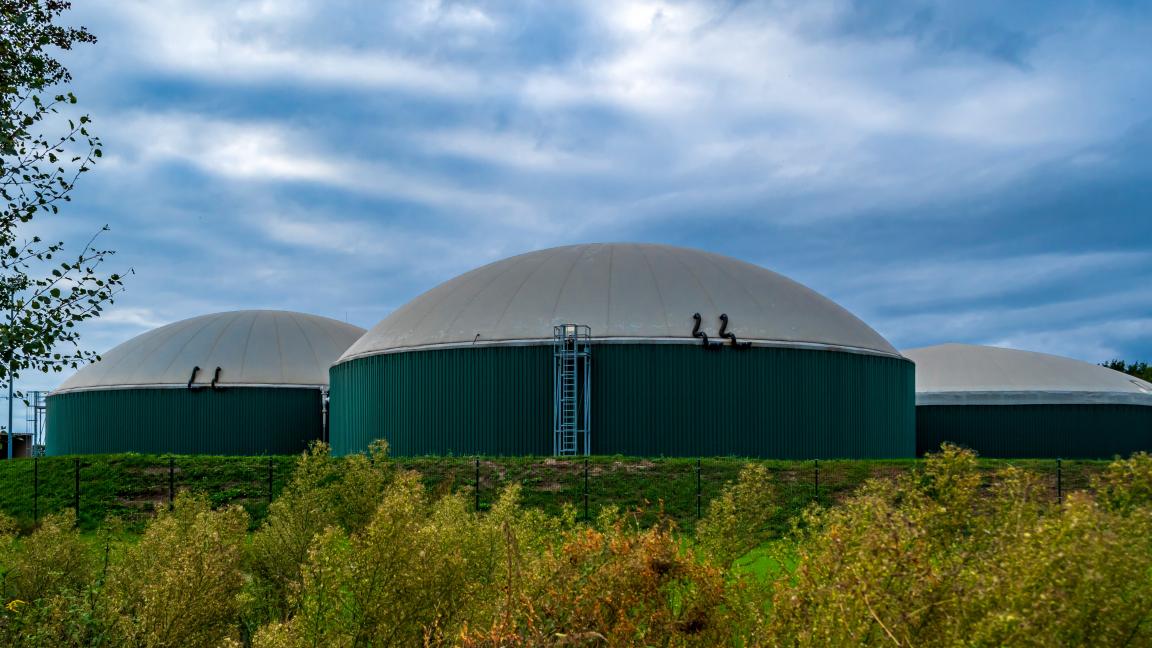– The DigiBiogasHubs project demonstrates that biogas plays a significant role in the green transition – not only as an energy source, but also as an enabler of regional cooperation and circular economy. Digital tools and shared operating models bring biogas sector actors together to build a more sustainable future, says Project Leader, Postdoctoral Researcher Kirsi Spoof-Tuomi from the University of Vaasa.
The two-year project, ending in November, has aimed to strengthen cooperation within the biogas sector and support market development in the regions of Ostrobothnia, Central Ostrobothnia and South Ostrobothnia.
Digital platform to support cooperation and trade in the biogas sector
The newly developed biokaasuhubi.fi platform brings together biogas sector actors in a single interface: producers, users, biomass owners, logistics services and experts. The platform functions as a marketplace and a tool for information exchange and networking. Its interface enables, among other things, the trading of biomass and biogas, open discussions and one-to-one communication, viewing actors on a map, managing certificates, and requesting quotations for logistics services. An open API also allows integration with other systems.
Special attention has been paid to data security, GDPR compliance and user-friendliness in the technical implementation. During piloting, functions were ensured to meet industry needs. During November, the platform will also be released as open-source software, and it can already be explored at biokaasuhubi.fi.
– We wanted to create a tool that is not just a technical solution but a practical instrument for developing cooperation and business in the biogas sector, explains RDI Specialist Jyri Mäkelä from Centria University of Applied Sciences.
The digital platform offers a new channel for industry actors to meet, collaborate and develop business. It supports regional circular economy and the green transition by providing concrete tools for building a sustainable energy system. Although the DigiBiogasHubs project is ending, further development of the platform is already planned to accelerate progress in the sector.
Process model guides the planning and implementation of biogas hubs
Another key outcome of the project is a step-by-step process model that supports the formation and development of regional biogas hubs. The model is based on work carried out in the project to identify potential biogas hubs in the Ostrobothnian regions, and it provides a clear pathway enabling regional actors to plan and implement biogas hubs efficiently and sustainably. A biogas hub is a regional entity where production, distribution and use are concentrated. Of the hubs examined in the project, the Ostrobothnia hub focuses on liquefied biogas (LBG) production and maritime transport in the Vaasa area, the Central Ostrobothnia hub on the industrial park in Kokkola, and the South Ostrobothnia hub on the food system and farms.
– The process model helps to identify regional biomasses and their methane production potential, define the uses of biogas and digestate, assess investment and operating costs, and outline the necessary permits, contracts and obligations of actors. It also supports the creation of joint ownership solutions such as cooperatives and energy communities, as well as the planning of feedstock and distribution logistics and technology solutions, describes Senior Lecturer Juha Tiainen from Seinäjoki University of Applied Sciences.
With the model, a competitive and profitable biogas ecosystem can be built, making use of regional resources and expertise while promoting cross-regional cooperation in the development of biogas business.
Final seminar on 20 November to highlight topical themes in the biogas sector
The project’s final seminar will be held on 20 November 2025 at the University of Vaasa campus and online. The seminar has one presentation in English, other presentations are in Finnish. Read more about the event.
Further information
The research project DigiBiogasHubs – Flexible and scalable biogas business through digitally connected biogas Hubs is co-funded by the European Union and coordinated by the University of Vaasa’s VEBIC research platform. Project partners are Centria University of Applied Sciences and Seinäjoki University of Applied Sciences. Other funders include Wärtsilä, Stormossen, PK Biogas, the City of Kokkola, the City of Kannus and the Kaustinen sub-region. The project began in December 2023 and has lasted two years.
